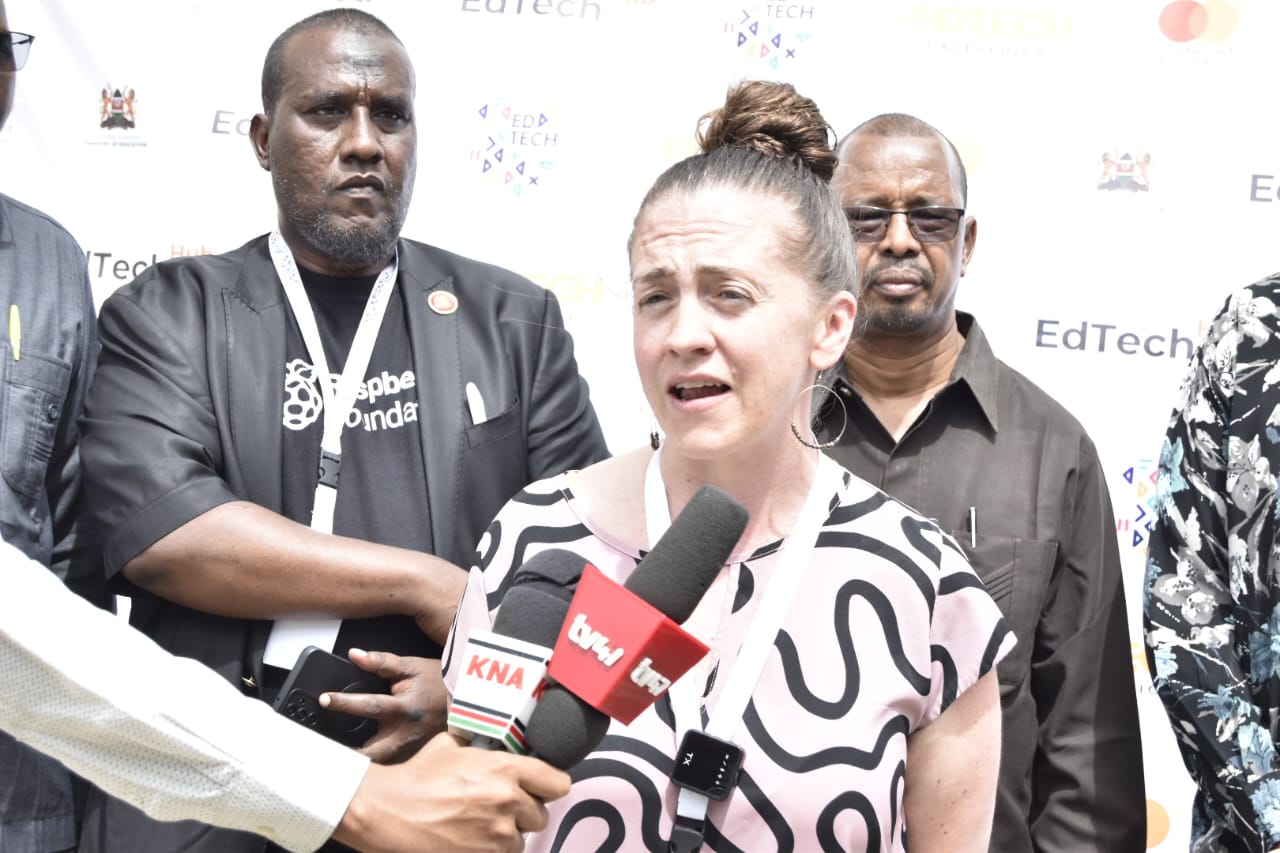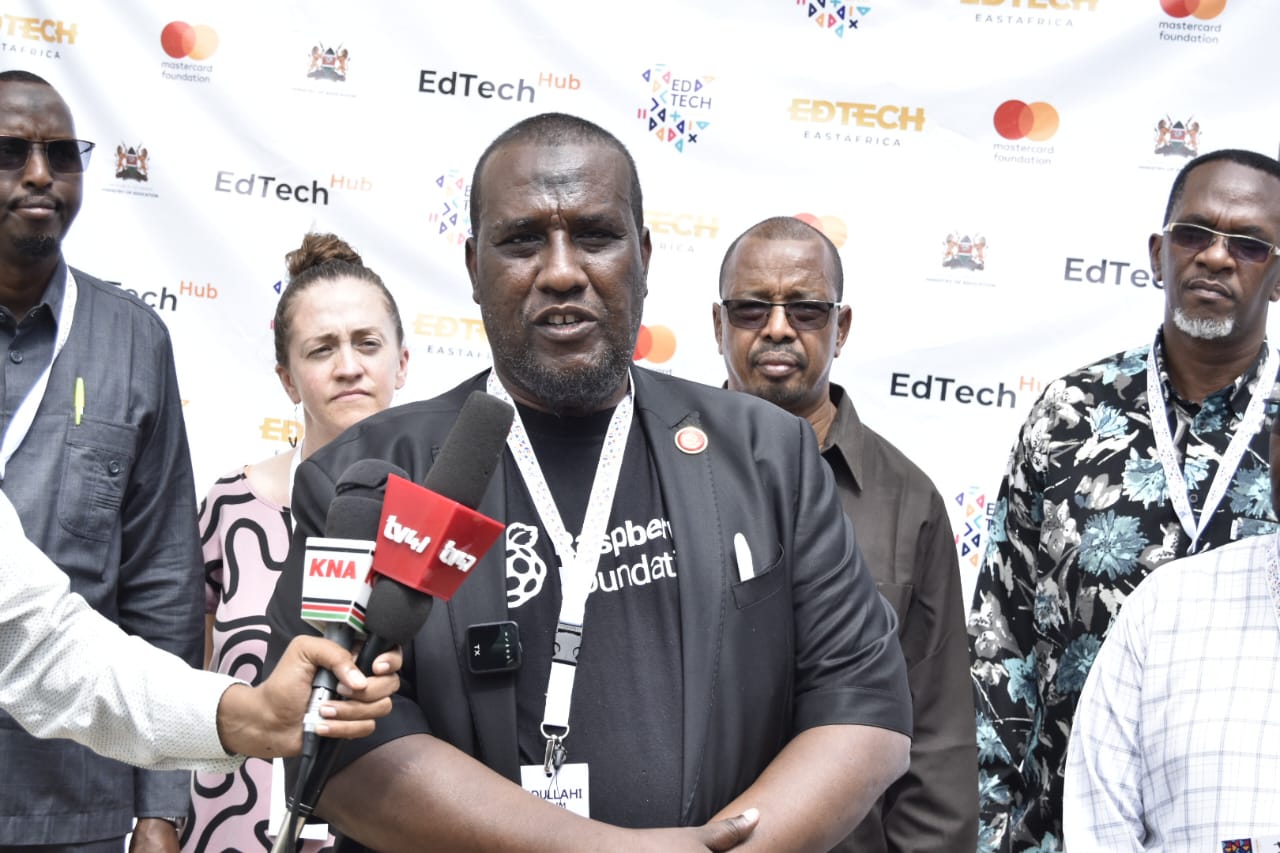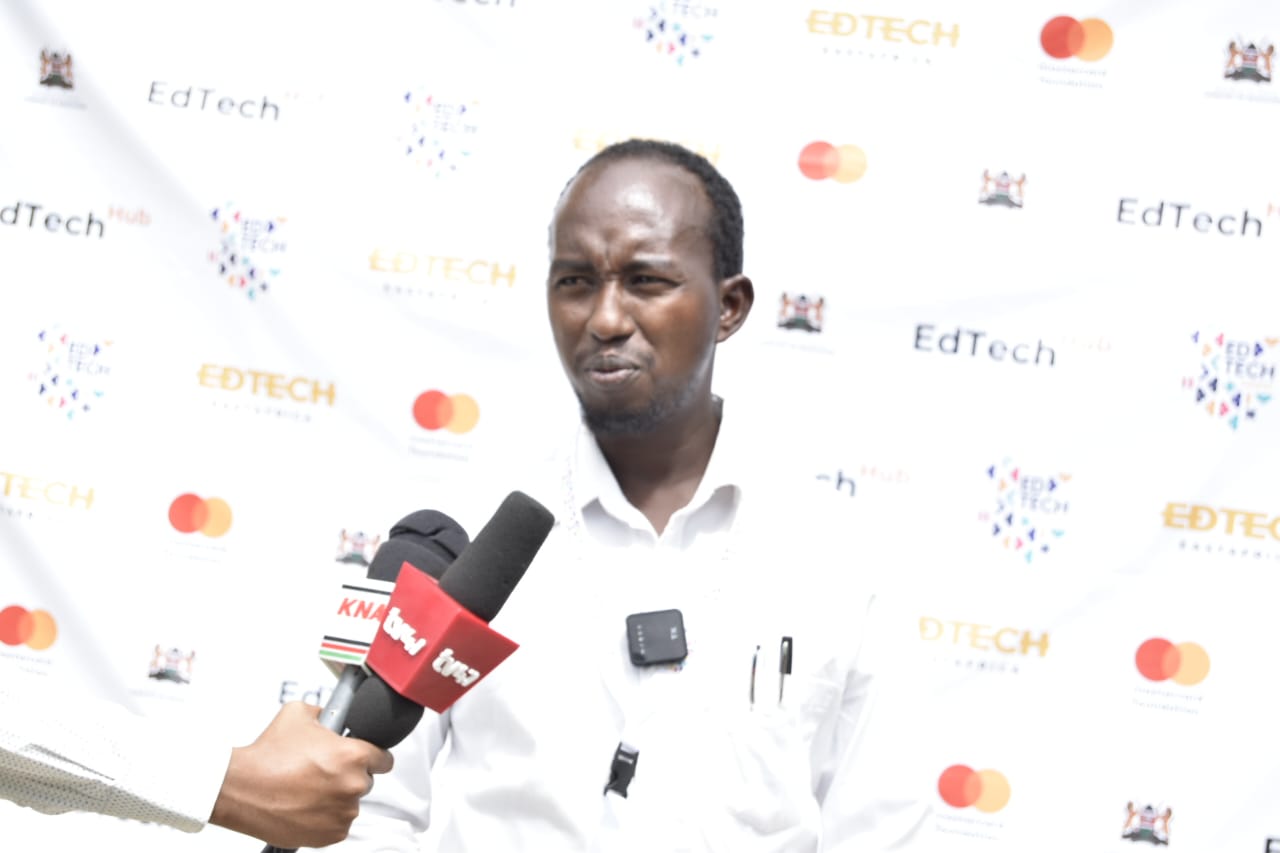 EdTech CEO Jennifer Otieno speaking during a press interview
in Garissa at the side-lines of this year’s
EdTech summit./STEPHEN ASTARIKO
EdTech CEO Jennifer Otieno speaking during a press interview
in Garissa at the side-lines of this year’s
EdTech summit./STEPHEN ASTARIKO Abdullahi Maalim, the regional lead for education and
governance in the frontier counties development council (FCDC)./STEPHEN ASTARIKO
Abdullahi Maalim, the regional lead for education and
governance in the frontier counties development council (FCDC)./STEPHEN ASTARIKO Galgalo tuki Boru a teacher at Manhattan Daaba primary and
junior in Marsabit county./STEPHEN ASTAR|IKO
Galgalo tuki Boru a teacher at Manhattan Daaba primary and
junior in Marsabit county./STEPHEN ASTAR|IKO
A digital revolution is quietly taking root in Kenya’s frontier counties, as a new initiative works to equip teachers and learners with essential tech skills—and it’s already transforming classrooms.
The programme, led by Education Technology East Africa (EdTech) and supported by partners such as the Ministry of Education, UNICEF Kenya, AI for Education, and the MasterCard Foundation, has trained 120 teachers so far.
These educators are now introducing more than 34,800 learners to the basics of digital literacy.
The initiative targets historically marginalised counties where poor infrastructure, limited access to electricity, and a lack of digital tools have long hindered the adoption of technology in schools.
“This is more than a training program,” said EdTech CEO Jennifer Otieno during a press briefing in Garissa.
“We are a community of EdTech enablers and innovators coming together to solve the challenges in frontier counties—to improve the effectiveness, inclusivity, and resilience of education.”
The programme’s approach brings together a broad network of stakeholders, including policymakers, teachers, researchers, digital service providers, entrepreneurs, and community leaders.
Otieno emphasized that education challenges in these regions are complex and require collective effort.
Since the programme’s launch last year, signs of progress have emerged. Otieno noted growing interest and tangible improvements in how ICT is integrated into classrooms.
“We’ve heard so many stories from the ground—about credible innovations, improved teaching, and new technologies being adopted in homes, schools, and communities,” she said.
“Now, we want to channel these experiences into national policy conversations to shape long-term strategies.”
Peter Wairagu, Kenya country manager for the Raspberry Pi Foundation, said the trained teachers are already serving as digital champions in their schools.
“When you train one teacher, they don’t work in isolation — they pass the knowledge on to colleagues,” Wairagu said. “Our vision is to cover every school and learner in these regions.”
For young learners, the exposure to digital tools at an early age could spark a lifelong interest in ICT and innovation.
But the challenges remain steep.
Abdullahi Maalim, regional lead for education and governance at the Frontier Counties Development Council (FCDC), pointed to historical underdevelopment as a major barrier.
“Many schools in our region lack basic digital infrastructure — no computers, no internet, no trained ICT teachers,” Maalim said. “Poor roads and communication networks also make it hard to deliver and maintain digital devices.”
Maalim called on the Ministry of Education to provide more learning tablets to schools, noting that many of the previously distributed ones are no longer functioning.
He also urged development partners to support efforts to extend electricity and mobile network coverage in remote areas.
Despite the hurdles, Maalim remains optimistic.
“There are deliberate efforts by the national and county governments, and by partners, to close the gap,” he said.
“The region is opening up to opportunities we couldn’t dream of before—and digital literacy is a big part of that change."









